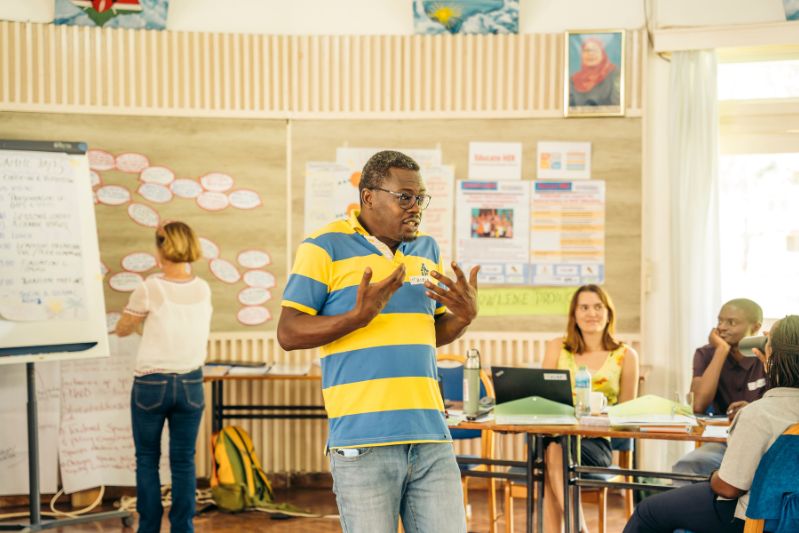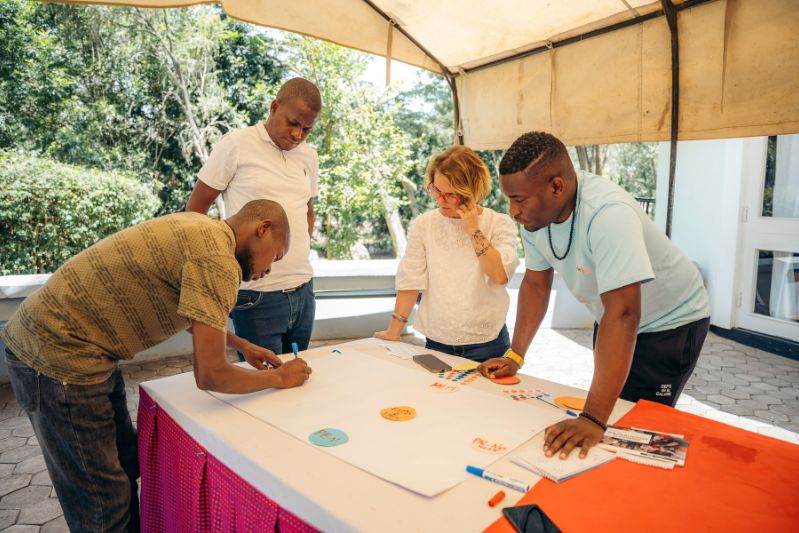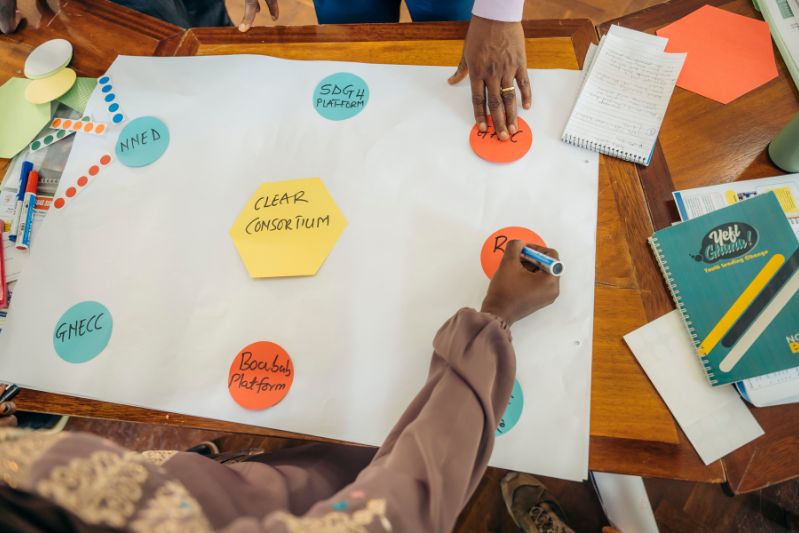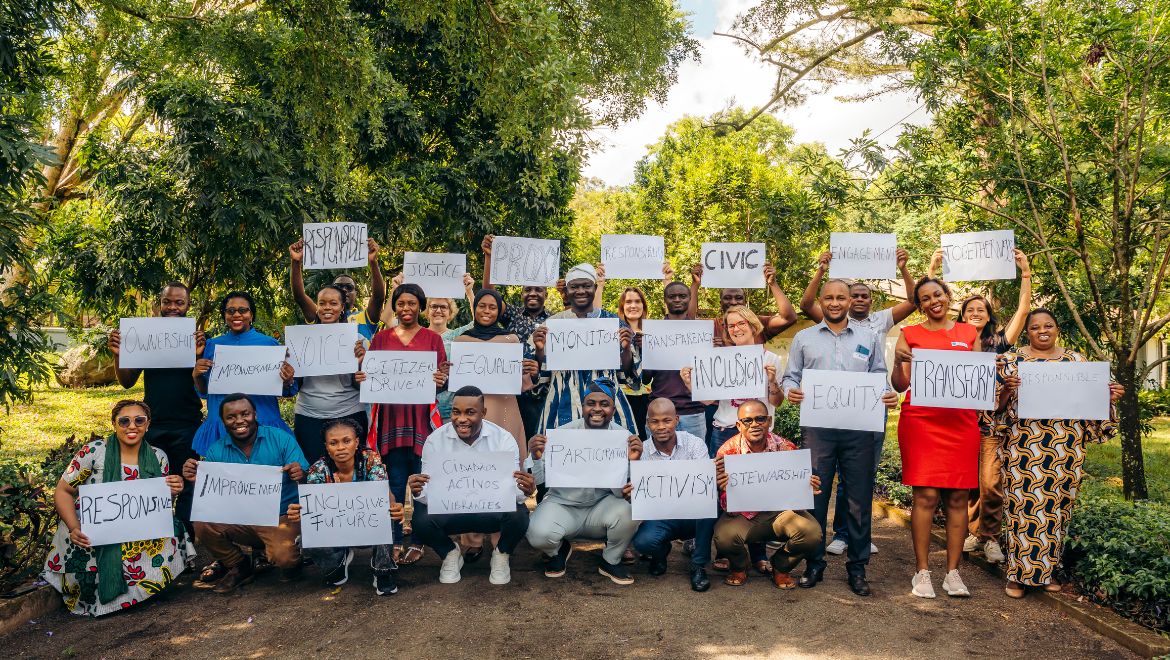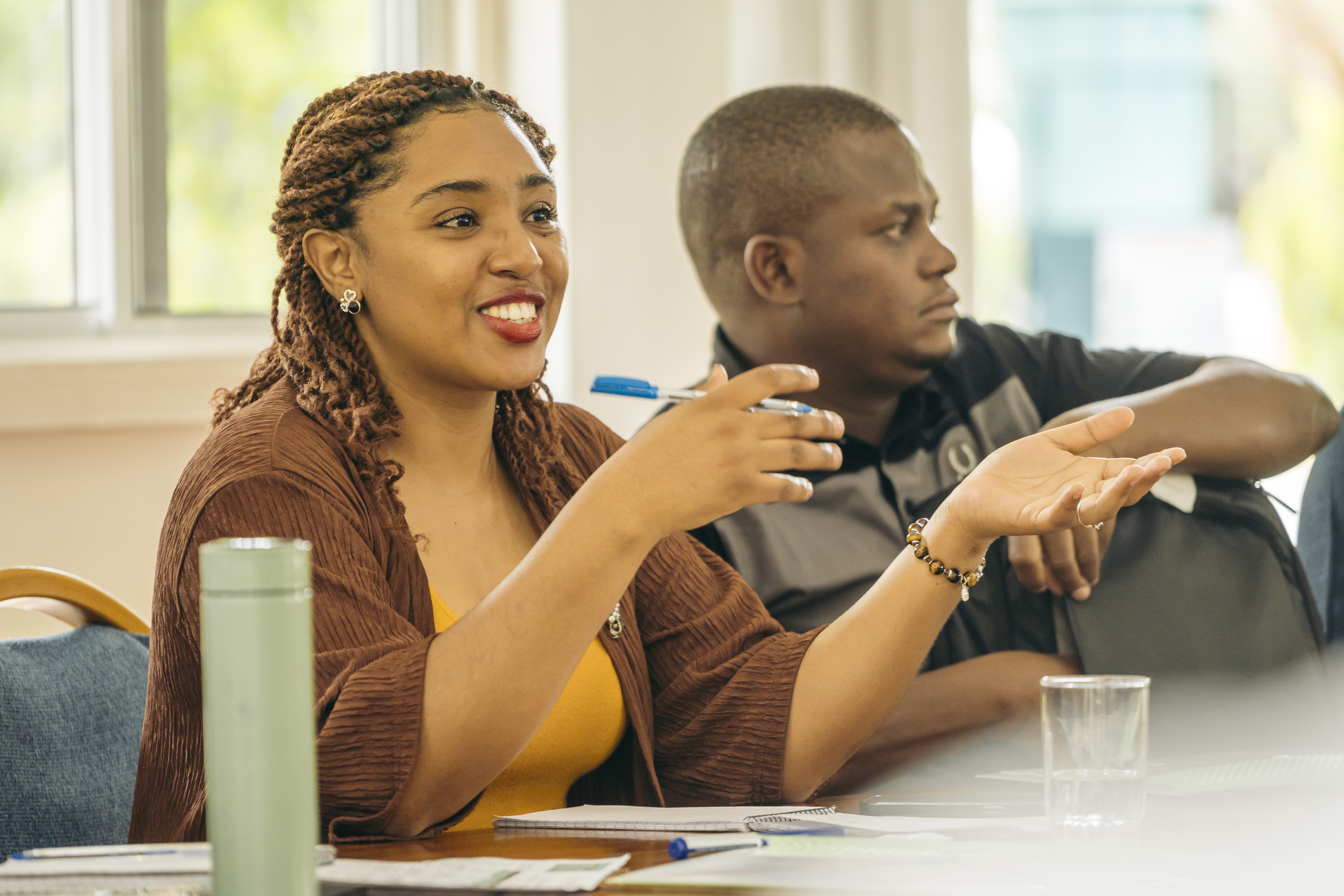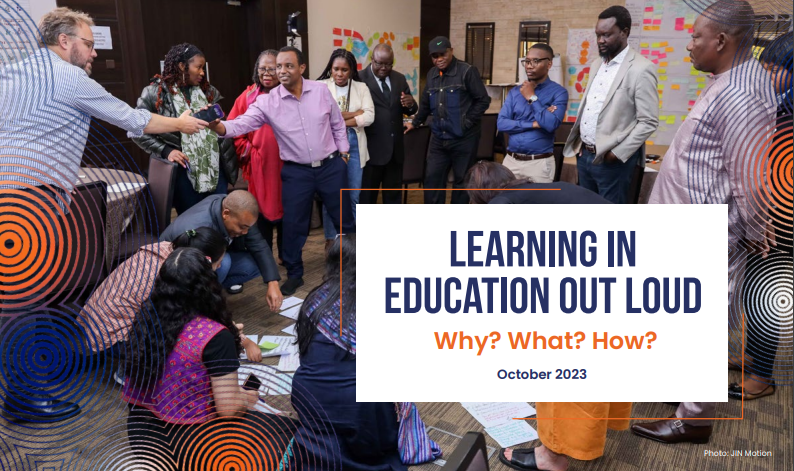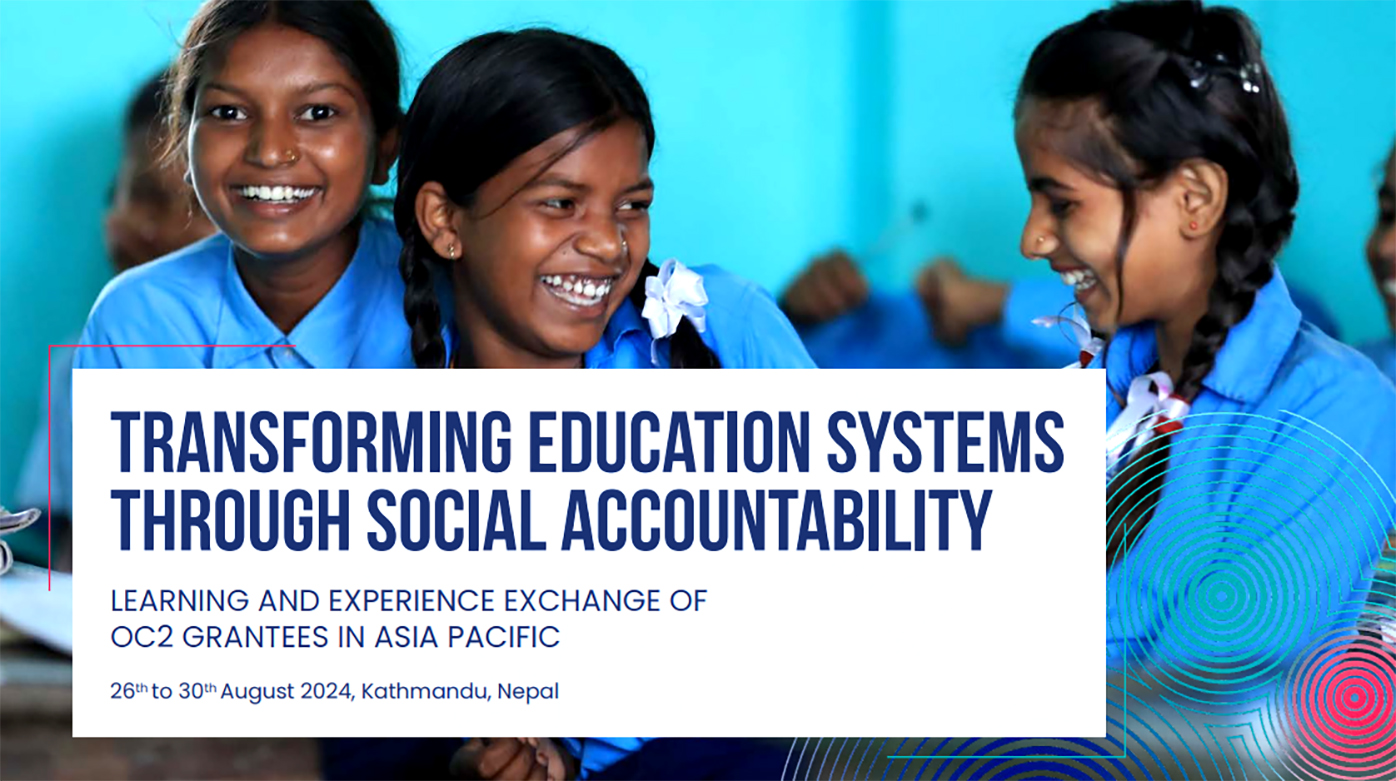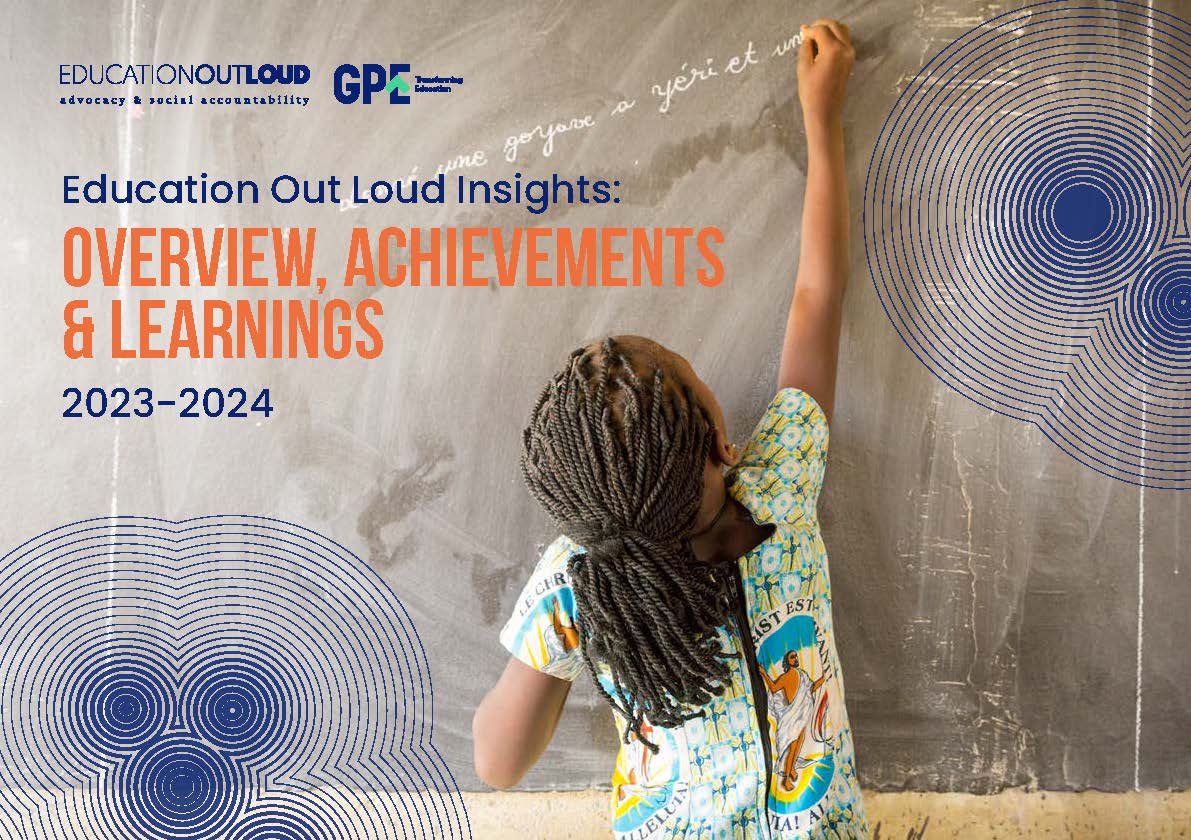Civil Society Alliances Transforming Education Systems in Africa Through Social Accountability
Read below for a blog on the learning from learning partner MS TCDC’s Catherine Mossi or watch the video from the learning event.
“Transforming education systems is not solely about policies or infrastructure - it is about people. It involves empowering communities, amplifying marginalised voices, and establishing mechanisms, where social accountability facilitates meaningful change.“
The education landscape in most contexts in the global south faces significant challenges, especially regarding equity and quality. Many students, including those from marginalised groups, encounter systemic barriers, resulting in stark disparities in educational outcomes. Social accountability mechanisms serve as a powerful catalyst for transformation, ensuring that all voices are heard, resources are distributed in a timely manner, data is transparent and diverse needs are addressed.
In November 2024, the EOL programme hosted a reflection and learning exchange workshop, bringing together 20 participants from Helping our People Excel (HOPE) from Liberia, School for Life from Ghana, FACILIDADE from Mozambique, Civil Society Budget Advocacy Group (CS-BAG) from Uganda and Haki Elimu from Tanzania – all holding a grant under Component 2.
The event focused on allowing CSOs to exchange experiences, learn from each other and reflect on their own learnings through implementing their projects. The EOL programme emphasizes the pivotal role of civil society in ensuring that governments are committed to the policies and plans that strengthen the education ecosystem. By promoting transparency and empowering rights holders to voice their concerns, civil society facilitates advocacy for the rights of the marginalised and systemic improvements in education.
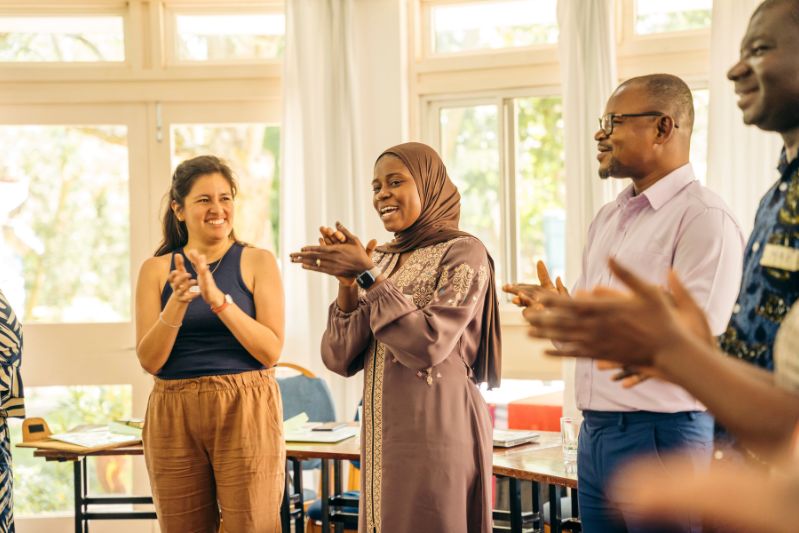
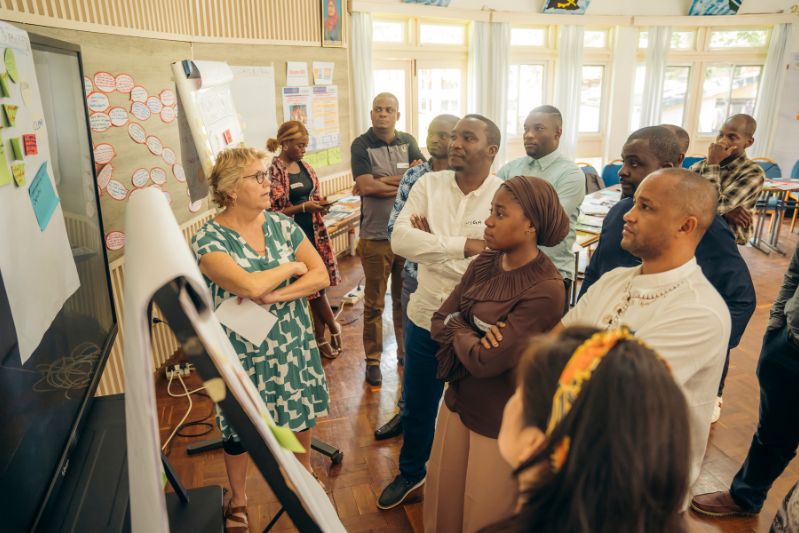
Grassroot mobilisation
This learning event highlighted the transformative potential of grassroots mobilisation. For advocacy to create meaningful change, it must centre on those most affected by systemic barriers. Marginalised groups, whether young people, girls and women, ethnic minorities, internally displaced persons or people with disabilities often bear the brunt of inadequate education systems and lack of access to quality education. However, they are not just beneficiaries of education services. They are vital contributors to social accountability processes.
Initiatives such as Ghana’s School for Life and Liberia’s Helping our People Excel exemplify the impact of engaging and empowering communities in the pursuit of education accountability. School for Life and HOPE have shown how engaging women and youth leads to sustained advocacy and innovative approaches to education challenges.
Alfreda Satta Foboi Nmah from HOPE, Liberia stated that; "Marginalised people possess valuable voices that must be heard and integrated into educational policy. When they are included, they can shape the implementation of policies that will impact their lives and the futures of their children."
Leveraging local data
Leveraging local data also plays a crucial role in social accountability efforts. By collecting, analysing, and utilising local data, civil society alliances have made monitoring a cornerstone of advocacy. Data enables them to bring evidence to the table and advocate for meaningful change. Equally vital is the ability to translate insights into actionable strategies. In Tanzania, Haki Elimu has demonstrated how local data can be used constructively to engage government stakeholders, ensuring that resources are allocated effectively and equitably.
"Social accountability monitoring mechanisms are an effective way to improve service delivery," said Godfrey Boniventura, Haki Elimu, Tanzania
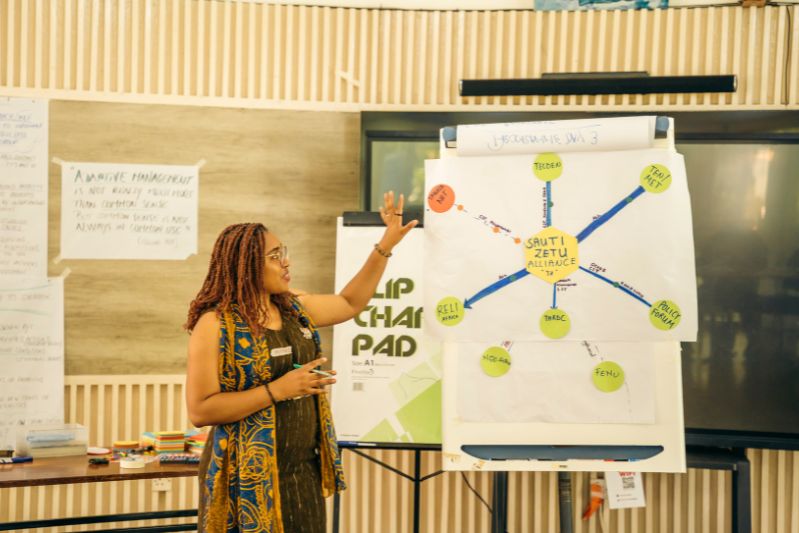
Diverse Pathways, Same Results
The pathways to achieving social accountability are as varied as the communities they serve. Reflections from the workshop underscored the importance of learning from diverse contexts and perspectives, outlining how common tools and mechanisms in social accountability could be adapted to unique contexts. These reflections prompted critical self-assessment, with Samiratu Dawood from CLEAR Alliance, Ghana noting; "Every great idea begins with a small step towards a larger goal, allowing us to become more context-sensitive and strategically aligned with those around us."
This journey for social accountability in education is about equity, justice, and the collective power of communities to demand better futures. As Civil Society Organisations continue to innovate and advocate, they illuminate a path that promises quality education which leaves no one behind. The vision is clear - education systems that are accountable, inclusive, and designed to serve every child, everywhere.
